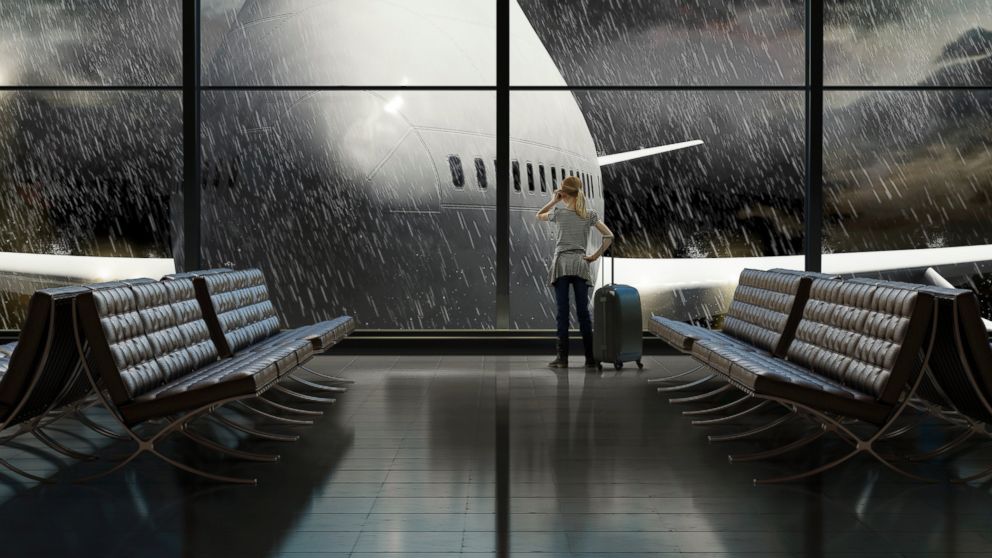The One Airline Freebie You Should Never Turn Down: Weather Waiver
— -- This will be of interest to lots of people who have flown in the last few weeks (or tried to), but it's also one of those good-to-know-anytime travel tips.
I'm talking about the freebie known as the airline pro-active weather waiver.
Bad weather can mean delays and cancelled flights. We've seen a lot of this recently thanks to snow and ice storms from coast to coast.
In a not-so-distant past, a lot of airlines just tried to tough it out, which sometimes led to debacles like the 2011 incident in which a JetBlue flight was trapped on the tarmac for more than seven hours.
As ABC News reported, that left more than 100 passengers on board "without food, water or functioning bathrooms."
Fortunately, such horror stories are rarer these days, largely after the Department of Transportation began hitting airlines with huge fines for tarmac delays of three hours or more.
At the same time, airlines got better at anticipating the potential for chaos during weather disruptions (think long lines of very unhappy passengers in airports) and begin doing something about it: Waiving change fees in advance of big storms.
Waiving a change fee is a big deal since change fees normally cost as much as $200. (Southwest is the only domestic airline with no change fee).
Even better, when airlines waive change fees due to weather, they usually do it well in advance so you don't even have to go to the airport; sometimes you can make the changes online, or sometimes it requires a phone call, but it's fairly hassle-free. Plus, when you make a ticket change under normal circumstances, you pay the fee and any difference in price for a new ticket, but the price difference is waived for weather, too.
How it works:
Last week, Alaska Airlines gave plenty of advance notice regarding foul weather in the Portland, Oregon, area and how they worked it is typical of many weather waivers:
- Who can change tickets for free: Anyone flying in or out of the affected city.
- Deadline: Passengers are usually allowed several days to change tickets but a deadline will be stated.
- Restrictions: Tickets may generally be exchanged for flights up to a week after original travel dates (though exact time frames vary).
Another weather-related freebie: Sometimes, as in the case of the Alaska example, those who don't wish to travel on different dates can get a full refund, which is very nice considering fully refundable tickets are usually much more expensive than regular economy fares. If you’ll be missing an important event due to weather, be sure to ask the airline if refunds are on the table.
How to stay informed about weather and waivers:
Pay attention to the weather and if you hear a big storm is on the way (and don't forget summer weather can also disrupt flights), make sure you're in touch with your airline. Here are some easy ways to do this:
- - Check airline contact info: Be sure to include your phone and email address when making reservations; if you forgot, go back and add it. Airline often provide updates via text or email.
- - Follow your airline on social media: If you already have a Twitter or Facebook account, simply follow the airlines you fly. If not, sign up and let the latest information come directly to you. Don’t worry, you personally do not have to tweet (unless you want to).
A word of caution: Flights do take off (and land) in snow and heavy rain all the time. If you see a few flakes when you look out the window, do not assume there will be delays or cancellation, or waivers. If it's at all iffy outside, contact the airline, but be prepared to go to the airport.
Rick Seaney is the CEO of FareCompare, a website that curates the best deals on flights from around the world. Any opinions expressed in this column are solely those of the author.




